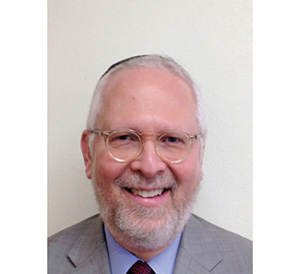
There is a well-known halacha that as we mourn on Tisha B’Av we may not learn Torah because the statutes of Hashem bring joy to the heart (Gemara Ta’anit daf 30a). The learning of Torah is celebrated as an extremely enjoyable activity, a delight (Tehillim 119:24,77,92,143,174). Over the years I have heard the question raised many times: “In what way is learning Torah an extreme delight? True, it is of inestimable value and great benefit; but in what way is the activity itself of engaging in learning such an absolute pleasure?” The question is a very fair one—one that deserves our attention.
I am of the firm belief that everything that we see in the Torah—whether it is part of Tanach or part of the Mishnah and Talmud—is only a small, visible clue meant to lead one to a deeper, unseen concept that underlies the pasuk (verse) or the halacha. Much like an iceberg, whose visible part is only the tip, the Torah reveals itself in relatively small doses, with enough that beckons the student of Torah to deduce the hidden concept from the revealed part. And so, for example, we may be very confident that the students of Hillel did not express their lenient view because they awoke one morning in a magnanimous mood, just as we may be very confident that the students of Shammai did not express their strict view because they awoke that same morning in a petulant mood. Rather, each group expresses its view of the halacha as the result—the manifestation—of a certain underlying concept, where the halacha naturally flows from the premise of the foundational principle.
The heart of the activity of learning consists of the discovery of that underlying concept—searching for the clues that will reveal the secret that leads to the discovery. In this sense, asking kushyot (questions that highlight difficulties or contradictions) is not a hurdle or a burden; in fact, the question is an opportunity—leading to a clue that directs one to the discovery of that sometimes elusive underlying concept. And as this is true in the study of Talmud, so too is it true in the study of Tanach.
Have you ever observed a preschooler playing with some object, experimenting, and finally solving what appeared to be a difficulty? The joy on the face of the child is radiant. The process of discovery is not a burden to bear; it is something in which to revel. Learning Torah is much the same.
But there is another dimension that must be highlighted. Not only does each halacha or pasuk manifest an underlying concept, but these underlying concepts themselves form a majestic, beautiful mosaic with each other, such that a large, breathtaking view of the wisdom of Torah emerges. Anyone who had the privilege of attending—or learning from the written accounts of—Rav Yosef Dov Soloveitchik legendary yahrtzeit shiurim (in memory of his beloved father, Rav Moshe Soloveitchik, zt”l) saw how one fundamental, unified, logical concept was able to solve numerous, seemingly impossible difficulties, with a gorgeous view of a foundational Torah idea emerging.
And then, when one realizes that these beautiful discoveries that form a wondrous mosaic are not merely abstract exercises, but that they guide one toward a meaningful life, relating properly to Hashem, to one’s fellow human beings, and to one’s self, the delight is all the more present.
This is a lifelong odyssey. The joy in the shiur of Rav Soloveitchik, zt”l, is rooted in the joy of discovery in preschool. When children are encouraged to search, to take delight in questions, to participate in coming up with creative ideas and hypotheses, to test those hypotheses and refine them, and to reflect upon the meaning of it all, they are well on the way to experiencing the delight in Torah learning that has been a central motif of our heritage from time immemorial, and we have begun to do our sacred part in passing on the torch of that noble heritage.
By Rabbi Saul Zucker
Rabbi Saul Zucker is head of school at Ben Porat Yosef.













